Doubt thou the stars are fire;Doubt that the sun doth move;
Doubt truth to be a liar;
But never doubt I love. William Shakespeare- Hamlet
Well, here we are at the end of a very long journey. Sen Çal Kapimi had its finale this week and the dizi has gone out like few others before it. The show’s audience has been blessed with the opportunity for the creators to have enough time to give the characters their due and to wrap up the story in a beautiful way. It’s worth it to take a moment to acknowledge this gift. Turkish television system is such that this planned, timely exit of the series is an anomaly rather than the norm, and so many series, especially the romcoms, end in one unsatisfactory way or another. Either they are cut short or they go on and on past the time when the audience is interested in the show. Sen Çal Kapimi skated along the edge of being on for too long, but ultimately, especially with the original creator of the series back at the helm, the show ended when it was still in a good place.
 |
 |
This was a summer romantic comedy, that Fox didn’t promote and wasn’t banking on. For it to last not only into the fall but beyond to finish out at the end of the following summer, isn’t something that anyone anticipated. But SÇK was a juggernaut and from the first week caught the attention of both Turkish and international audiences. The combined charisma of Kerem Bürsin and Hande Erçel, the talent of all of the supporting cast, the strong and soulful writing, the obvious camaraderie of the cast and the crew was a perfect storm to create something special. To have all these elements fall into place in one series is rare and is the reason that the show is so beloved and why it could weather some rather questionable storyline that might have caused another show to be canceled.

The show came on the scene at a time when the entire world was looking for a distraction and something to uplift us and Sen Çal Kapimi fit that bill. The pandemic kept so many of us at home for months and having this exception show to watch and dissect kept us busy.
Writer Ayşe Üner Kutlu created beautiful and flawed characters that we fell in love with and a story that was both classic and innovative. She introduced us to a couple, that on the surface were opposites but ended up being very similar and took us on their journey to find themselves and their happiness. Along the way she explored themes of childhood trauma and grief and how they impact us as adults, the effects of parental abuse and neglect, and how friendship and found family can give us back some of the security of family when the biological family is lost. This is the strongest message for the entirety of the series, that we can make our own family with people that we love and that family can help us to find our ultimate happiness. Her loss in the middle of the series was hugely impactful and the series wasn’t anything close to the same in those middle episodes, but the foundation she and her original team laid down was strong enough to withstand some pretty subpar storytelling.

This was a series that showcased literary parallels and borrowed heavily from some classic novels from Turkey and beyond. Some examples like The Little Prince, by Antoine de Saint-Exupery and Madonna in a Fur Coat by Sabahattin Ali, are heavily featured throughout the series and the main characters read excerpts from them in multiple episodes. Others, like Pride and Prejudice by Jane Austen, are alluded to in the crafting of the characters in Sen Çal Kapimi. This literary tradition of borrowing themes and using books to narrate the inner feeling of characters illustrates Ayşe Üner Kutlu's love, not only of these particular books but her love of the craft of writing as a whole. She also creates an Apollo ‘myth’ that parallels her main character's journey in their love story, thus continuing a tradition that is even earlier than the greek myths of taking a story and changing it to fit the narrative you are trying to form. The knowledge of any of these books or mythology is not necessary to enjoy the story of Sen Çal Kapimi but it adds to the environment of the story that we can recognize the literary sources that are being drawn from to create a new story. This literary ‘stealing’ of ideas and themes has been around as long as people have been telling each other stories and is not a failing on the part of a writer for not being completely original, the benefit is that the audience can follow along and know what kind of a story is being told, not unlike an audience who tunes in to watch a romantic comedy knows that by the end the main couple will get together and live happily ever after.
The Beginning Episodes 1-13
The first thirteen episodes were an all most perfect romantic comedy package. It hit all the beats necessary for a great romance, attraction, friction, angst, and ultimately true love. Plus, we had the bonus of good side characters who added tremendous value to the story. Kerem Bürsin and Hande Erçel were perfect in their roles, each of their characters had flaws and virtues, they were equals coming together, and the story of support and love was a beautiful one. Serkan and Eda complemented and contrasted each other and the love that they shared made each of them happier and in the case of Serkan, feel worthwhile. There was give and take in their relationship and they were nicely balanced, she brought light to his life and he taught her to be less impulsive. It was a good partnership.

The supporting characters were mostly funny and/or sweet, the main character’s friends and family were themselves interesting, and the cast was all incredibly talented. Most of the poor girl/rich boy clichés were avoided and the story was well-paced.
If this had been the extent of the series it would be viewed as one of the best romcoms.
The Breakup Episodes 14-28

Given the nature of the Turkish television industry, where there are no set seasons or number of episodes it’s hard to know how writers map out their stories because they don’t know how long they are going to have to tell it. One assumes that the original writing team had the breakup scenario planned out in case the show carried on beyond the summer. It’s a fine line to walk in this situation because you don’t want the breakup to be for a reason that tarnishes the love story so generally, writers go with either miscommunication or in this case, one partner sacrificing themselves for the happiness of the other partner. It’s a tried and true method to create conflict but not diminish the love the characters have for one another.
The Breakdown Episodes 29-39
 |
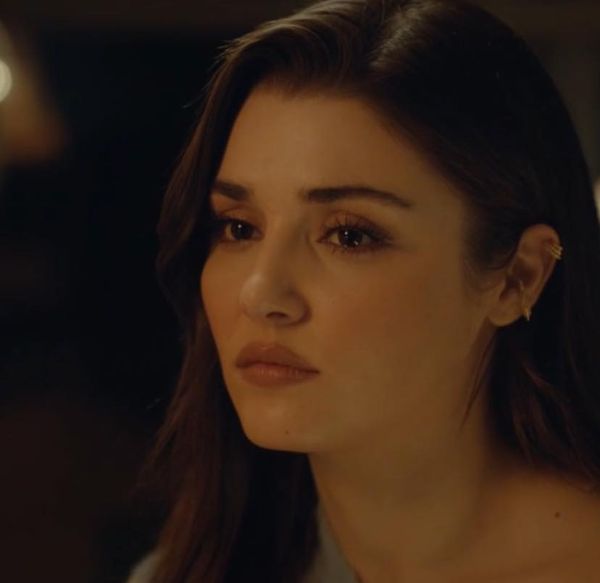 |
Which made the switch in writing teams and the change to the focus of the story of Sen Çal Kapimi so jarring when Ayşe and her original team left and new writers came in at episode 25. Suddenly, we were being told that it wasn’t a romantic comedy anymore that now it was a romantic dramedy. A wholly unfamiliar kind of story, and what unfolded wasn’t romantic, wasn’t particularly funny, but did create a lot of drama, both in the show and in the fandom. The new writers are not to be blamed for this shift. They were simply doing what they were hired to do. The blame lies with the production and the channel wanting, because the show was popular and was making them money, to continue the series beyond what a traditional romantic comedy story can accommodate. Once the main couple gets together the story is complete and so to continue it they must be parted, not easy to do to a couple who have declared their love for one another and found their happiness. This is where Sen Çal Kapimi went off the rails and lost a portion of its viewing audience, the suspension of disbelieve and the fanciful storytelling necessary to create a situation where the main couple isn’t together anymore was too much for many in the audience.
The (Re) Boot Episodes 40-52
Writer Ayşe Üner Kutlu coming back was the only way the series could continue in any meaningful way. After fifteen episodes of quite frankly amateurishly written episodes, where characters were often completely out of character, plots were increasingly ludicrous, all the touchstones of the love story were sequentially destroyed, and even the reunion of the main couple was badly handled, bringing back the originator of the series and having a long time jump were the only ways to salvage any of the original magic of the series.
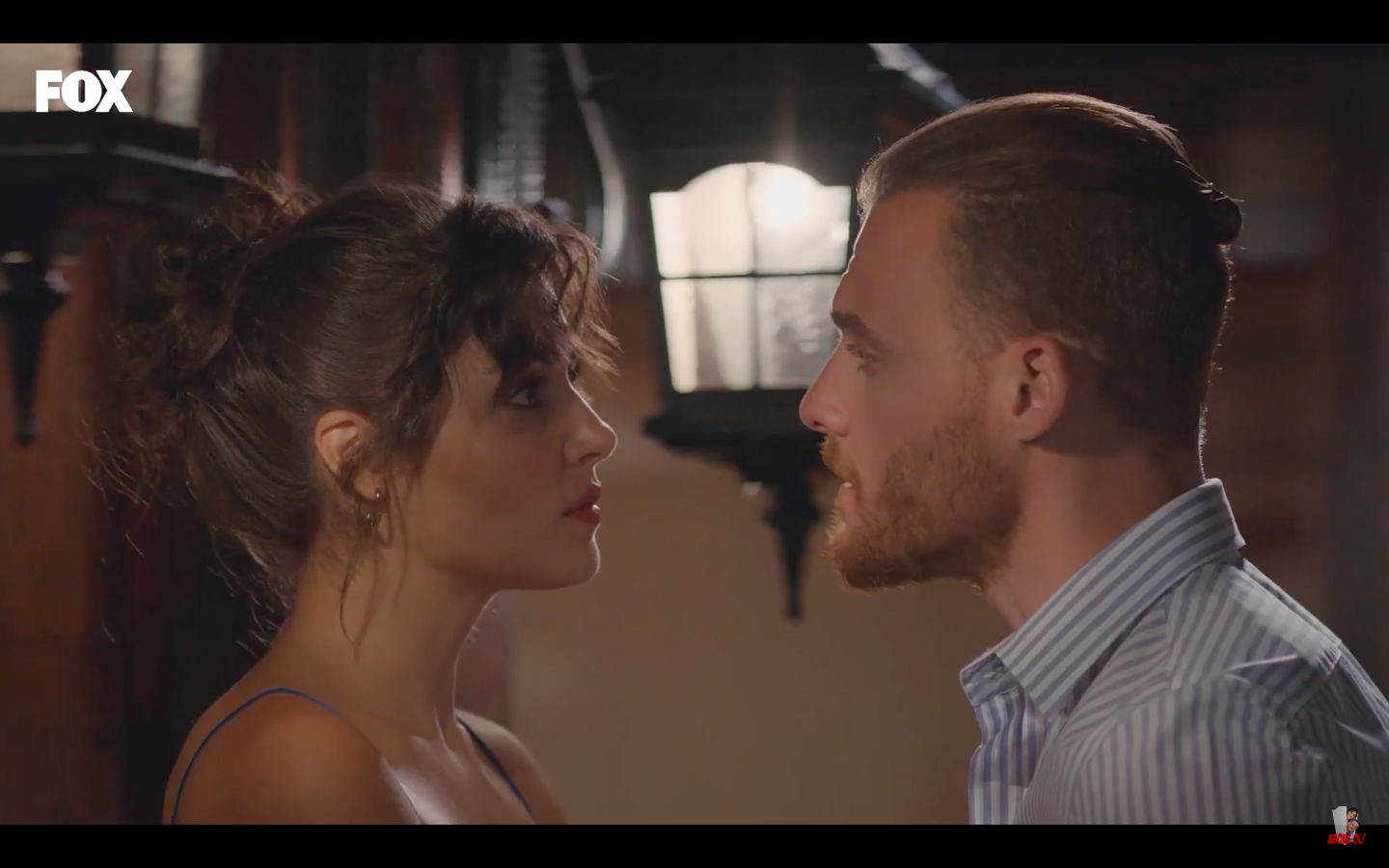
Season two was a brand new story but also wrapped up a lot of the character’s stories. The hoped-for but not guaranteed happy ending for the main couple was realized and we got to see a small glimpse of their continued happiness into the future.
One last time… bir, iki, üç, dört
What I loved
The love story of Eda and Serkan was masterfully told and the tension, attraction, and love between them were beautifully portrayed. It isn’t as easily done as might be imagined. The enemies to lovers trope is a classic one but often the shift to love isn’t well done and leaves the viewer/reader wondering ‘when did that happen?’. It is a talent to both write and portray the subtle changes and show the small moments when the shift happens. Sen Çal Kapimi nailed both, the writers gave us the beats of the story and Hande Erçel and Kerem Bürsin hit all those beats. It was a perfect marriage of both the show and tell aspects of storytelling. Too many of these small moments to list but the two that stand out for me are in episode six, Serkan’s heart monitor going off when they wake up together on the couch, and Eda’s facial expression as they hug after he plays guitar for her. There doesn’t have to be any conversation or inner dialogue, we see it in the situation and the looks on their faces. This ability to ‘show’ this kind of emotion isn’t available to every writer.
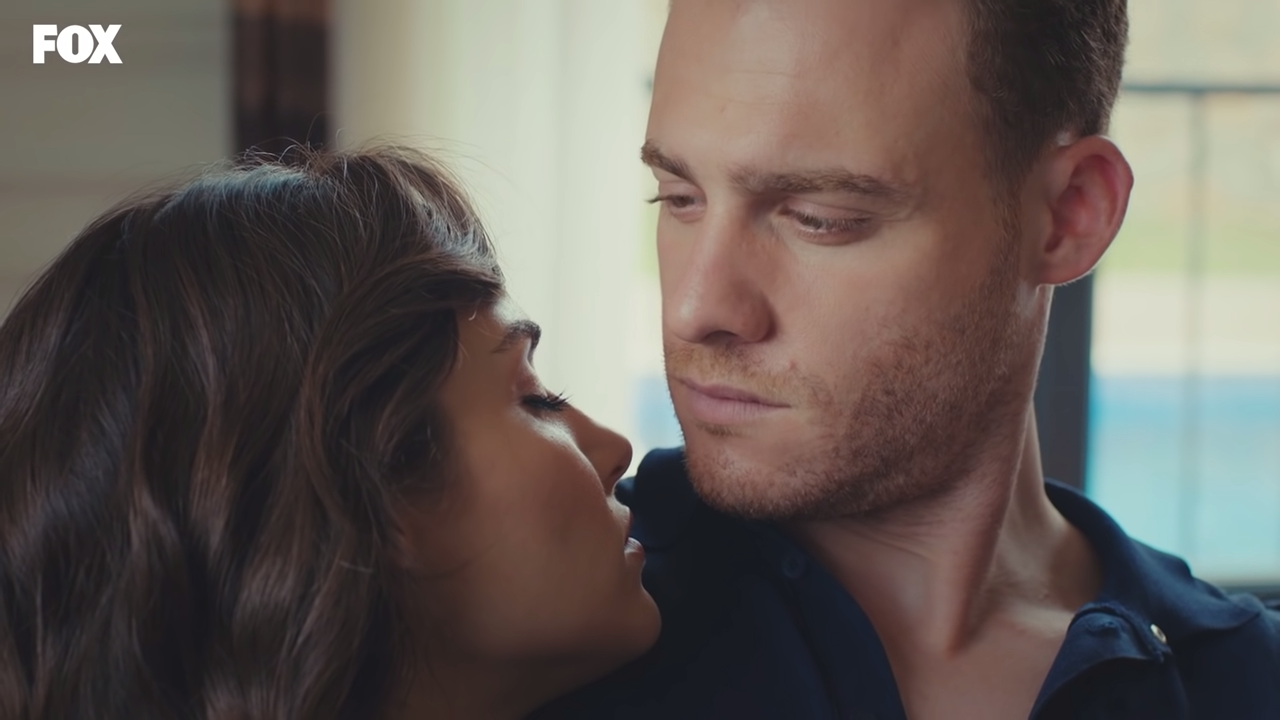 |
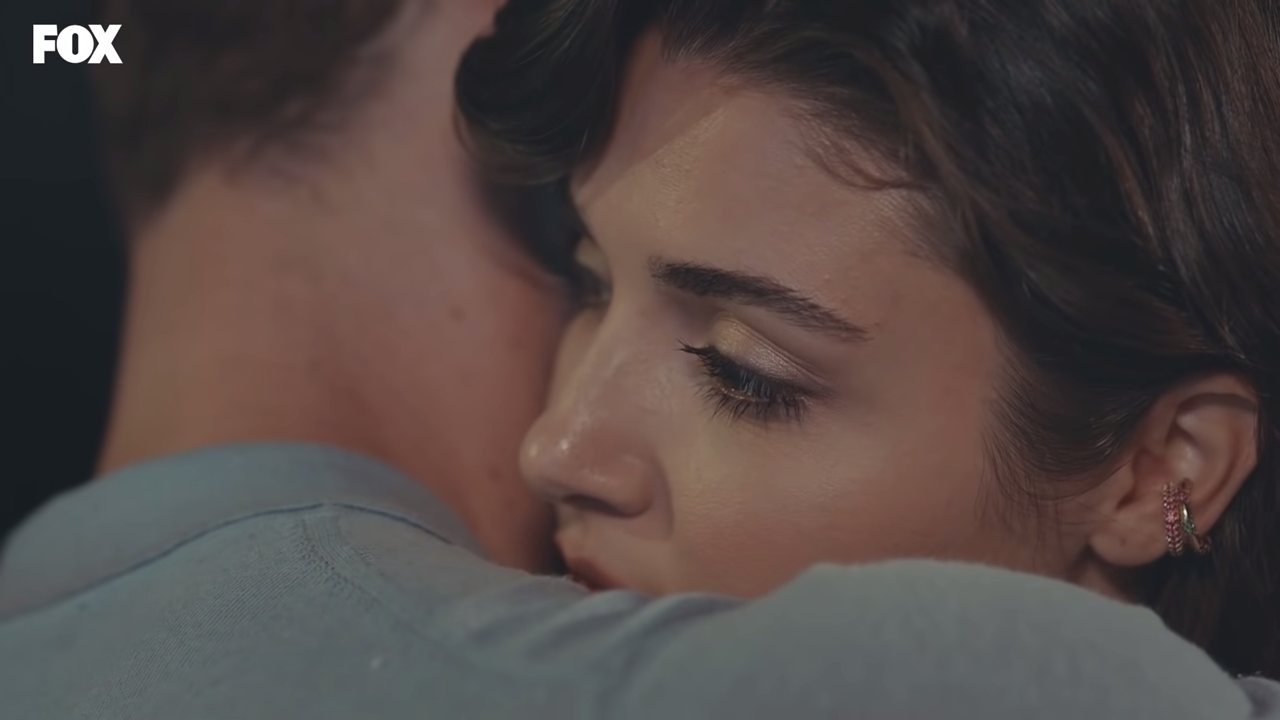 |
The journey we went on them wasn’t always smooth, but the actors were strong enough and their bond apparent, even when they weren’t a couple, to keep the audience engaged. The chance to see them reach their happy ending and enjoy their life with their children was an unexpected gift. Particularly seeing buttoned-up Serkan deal with kids and their needs was wonderful.
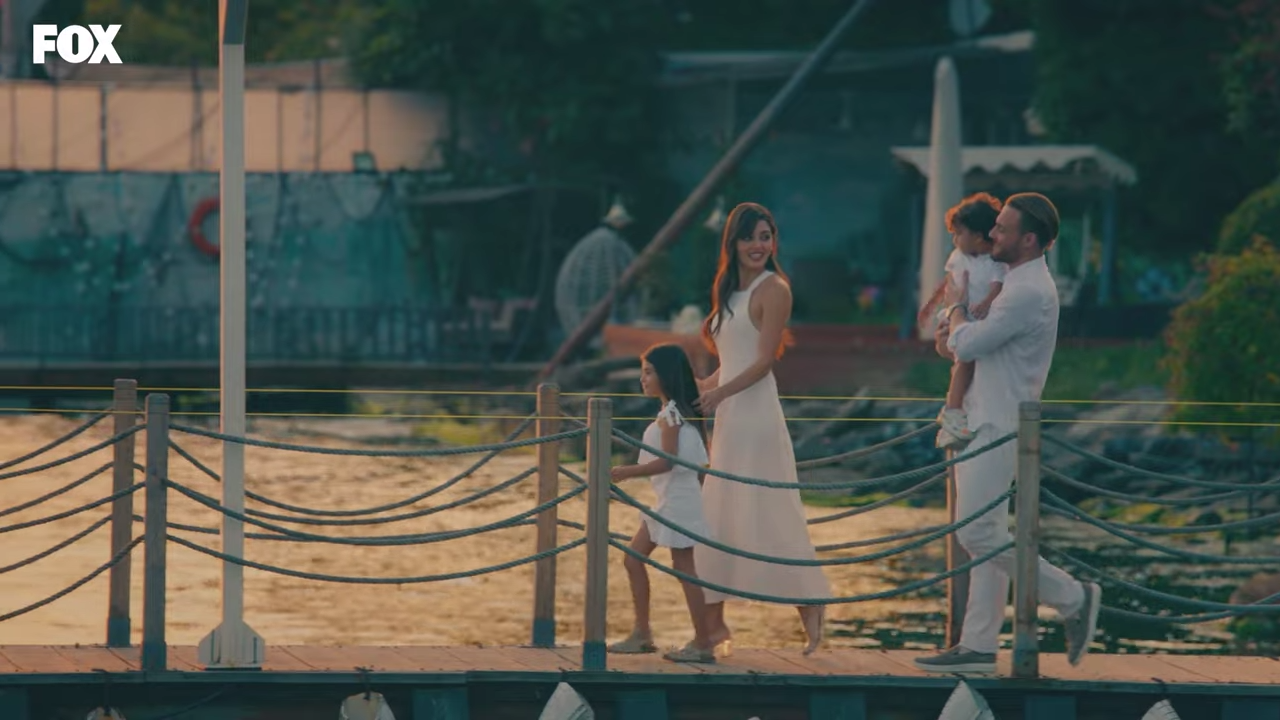
The Kizlar were a joy to have around for as long as we did. I loved the focus on young women forging their paths in the world and having the support of their girlfriends to do it. These four characters and four actresses were amazing and it was very sad when they were no longer together onscreen. Melo especially was a wonderful character and I loved her from start to finish. A loyal and unwavering friend, a woman looking for true love and unwilling to settle for less, and I wish we might have spent a lot more time on her story.

Serkan’s friends were also good, especially Engin, who although had a hard time getting his own romantic life in order, gave some good advice to Serkan and also told him some hard truths. Piril was a less fully realized character and had very little interactions with Serkan for supposedly being such a close friend, but in season two that changed, and her character was finally morphed into one we could root for.
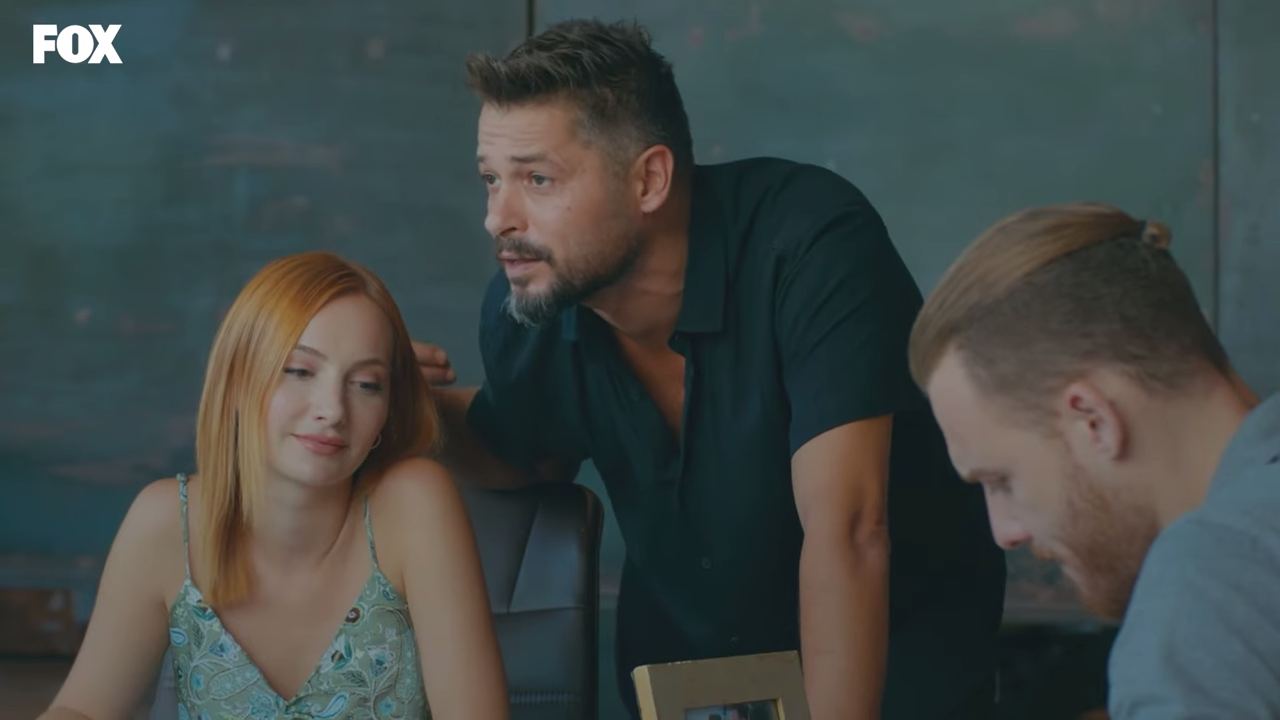
There can never be enough good things said about the Ferit character. I was convinced at the beginning of the series that he would be one of the villains of the show but instead, he was one of the best and most loyal characters. This unexpected shift in the kind of character he ended up being will always be one of the highlights of Sen Çal Kapimi. He supported Selin, Serkan, Eda, and Ceren many times and turned out to be a better friend to Serkan than almost anyone. I was sad to find out that he wouldn’t be in season two but glad they gave him a happy ending even if it was off-screen and we didn’t get to see it.
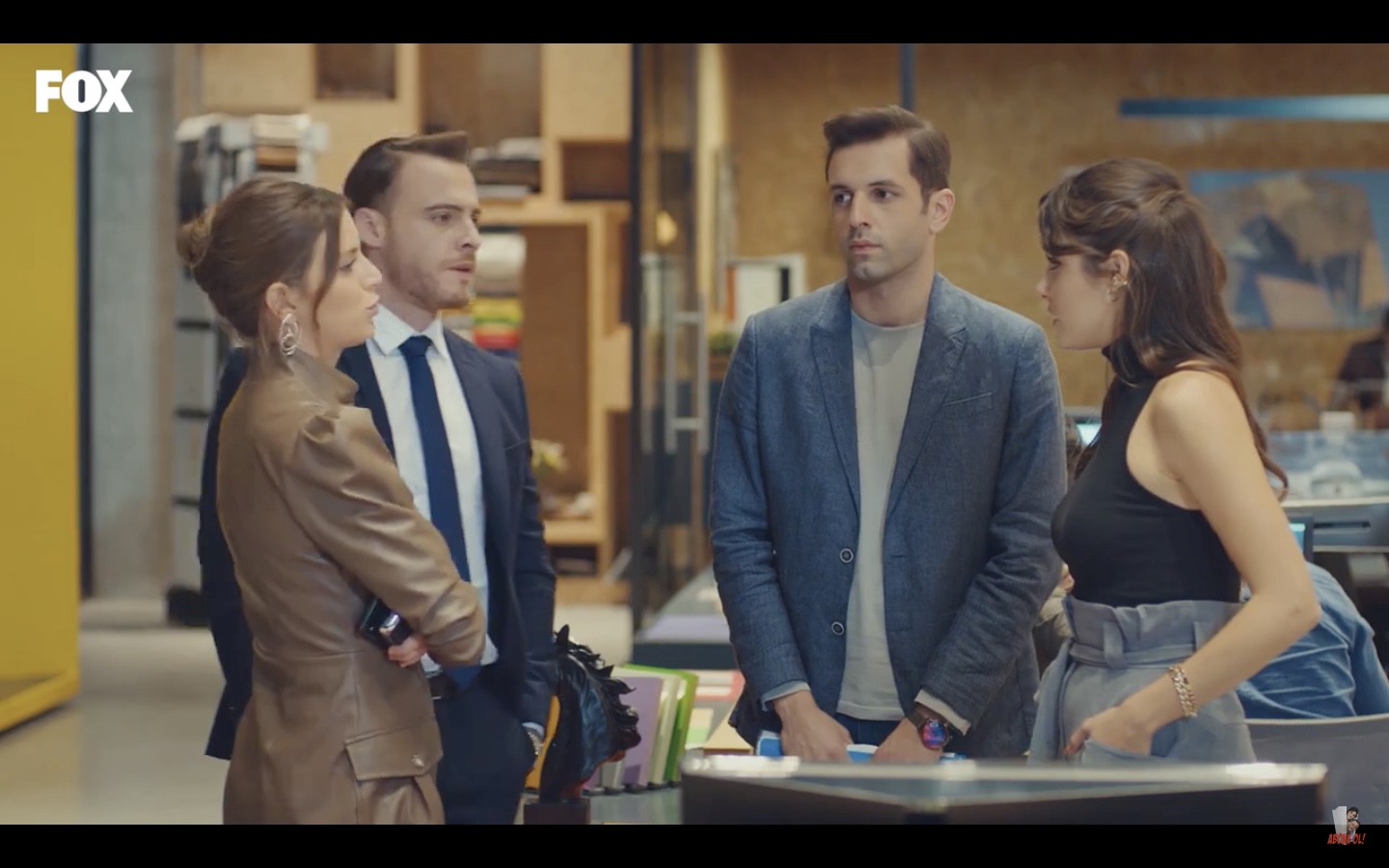
Leyla and Seyfi as comedic supporting characters were amazing and provided some great funny scenes. Leyla the ever-loyal assistant to Serkan who was terrified of him at first but learned from Eda how to manage him and even troll him. I found her delightful, the actress has great comedic chops and her physical comedy was particularly good. I was again sad to hear that she wouldn’t be in season two, I would much rather have had her than Erdem. Seyfi was the voice of reason and provided some balance to the craziness of Aydan although he supported her in too many of her nasty schemes for my liking. I did love that Serkan, in the final episode, thanked him for everything that he had done for Serkan’s family over the years, it was a long-overdue acknowledgment of the service he had provided to the Bolat family. Can we assume he has moved on to work for the Yildiz/Bolat family now?
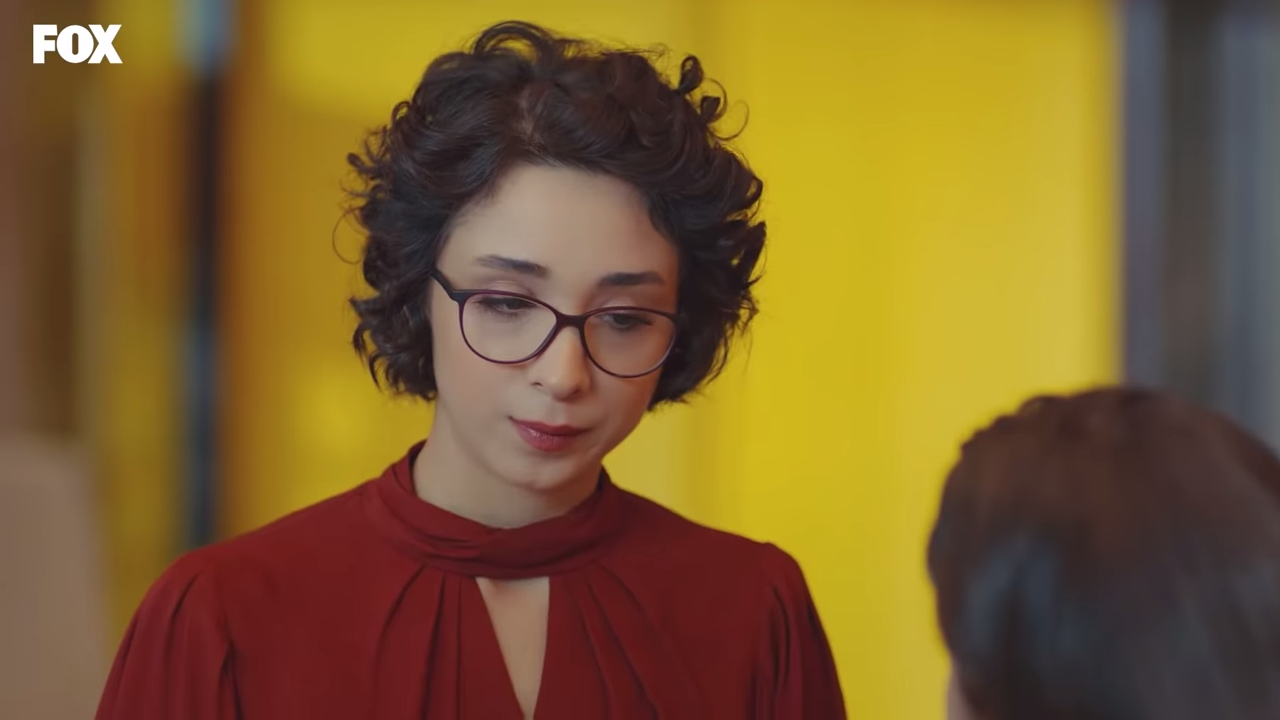
Lastly, I want to acknowledge the hard work that the cast and the crew did to produce a feature-length movie episode every week during a pandemic. The Turkish television production schedule is crazy at the best of times but to do this all amid Covid is something that should be lauded. On top of that, the cast and crew were so generous in providing behind-the-scenes pictures and videos, the cast did dozens of Instagram lives and other videos and engaged with the audience far beyond what might have been expected from them. It’s obvious that they all got along very well, and the engagement of them with the audience in this way added to the enjoyment of watching the show and frankly kept the audience around when the writing for the show wasn’t great.
What I liked
I liked the focus on education. The first episode had all the kizlar except Eda, graduating from university and starting their careers, and the focus was on that from the beginning. It isn’t necessary to have a good life, but for this series, the focus that finishing university was important to Eda, that it would provide her the means to fulfill her dreams, that her partner fully supported this. It took her some time to finally graduate but she didn’t and coupled with her experience working with Serkan gave her the tools to become top of her field and also that she in the end provides the support for someone else to go to university and fulfill their dreams was a good message. I would have liked to see some of her experiences of being at university in Italy.
Serkan's growth as a character was very well done and Kerem Bürsin did a stellar job of playing a man who in some aspects of his life is ultra-confident and in others, he has crippling feelings of self-loathing and inferiority. Sen Çal Kapimi did not do a good job of portraying mental illness as a whole but the character of Serkan was well done. His journey from lonely man to loved husband and father was beautiful and heart-wrenching and was probably the best thing in the series.

All the ‘touchstones’ that were established in the series, the engagement rings, the colour changing mug, the use of flowers, the ‘I hate you Serkan Bolat’ ‘Our feelings are mutual, hanimefendim’, the birthday cupcakes, and others are small bits of continuity that make a story special. Couples will have places, songs, movies, books, sayings, and objects that are special to them and the writers provided many of these things for the Eda/Serkan relationship. These serve as a kind of shorthand when used in a story, an example is the use of the colour-changing mug to prove that Eda and Serkan are still in love with one another, and the destruction of these touchstones in the non-Ayşe written episodes was particularly galling for the audience.
I liked that Serkan got a second chance to have a father with Kemal coming into his life. Kemal is a gem of a man and although he is very late to Serkan’s life, he will hopefully provide the sense of fatherly love and support that Serkan has never had.
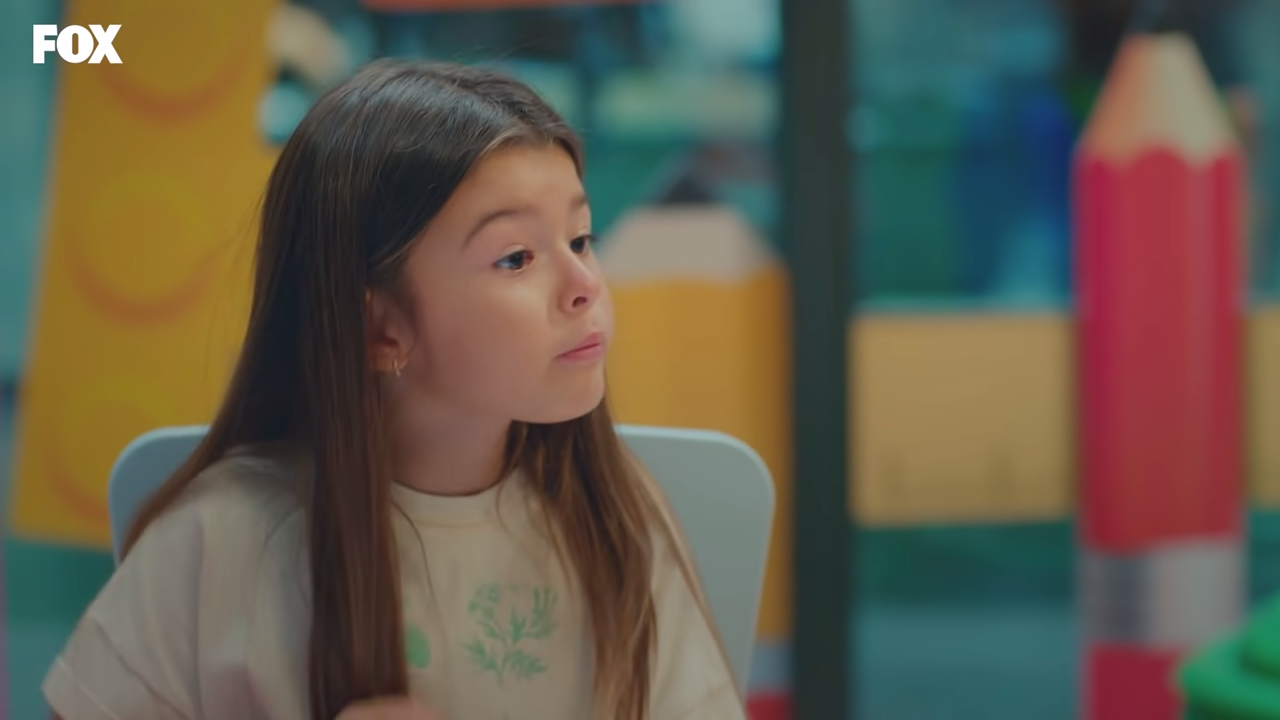 |
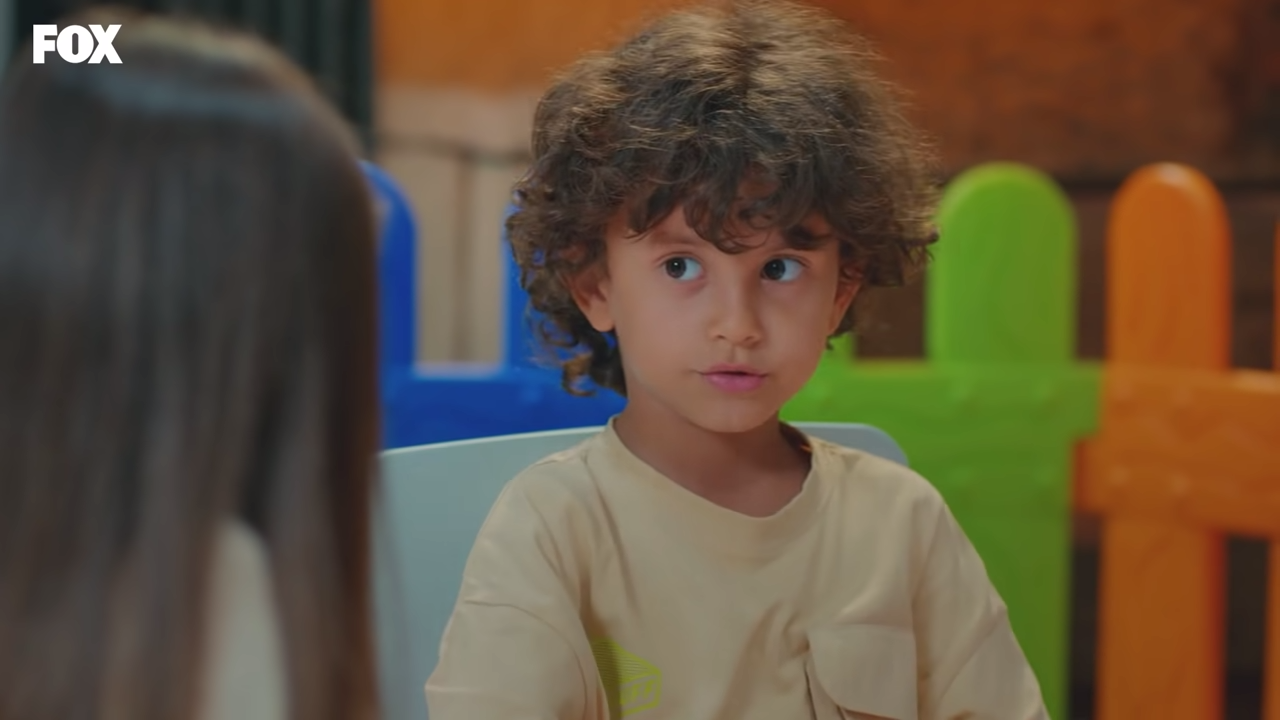 |
I was pleasantly surprised at how much I enjoyed having kids introduced to the show. I generally don’t like when children are included in a show that was previously only adults as they tend to be written either too cutesy or too adult. Kiraz and Can were written believably as kids, although very smart kids and they were a welcome addition to season two. The young actors playing them were incredible and kudos to the adult members of the cast, especially the ones playing their parents, for obviously making the kids feel safe and welcome.
What I disliked
I don’t want to harp on all the things that I have complained about in many previous reviews but there are a few things that spanned the entire series that I want to touch on.
At the beginning of the series, there was an equal portion of the story allotted to both Eda and Serkan. They were both shown to have flaws and virtues in equal measure and the story initially deftly showed how well matched they were and how they filled in each other’s gaps. Serkan was cold and robotic, but smart and focused. Eda was easy-going and friendly, but impulsive and scattered. Coming together she softened his edges and he taught her the benefit of planning and strategy. The balance of the characters was one of the best things about the series, they were both fully realized people with their history of childhood pain and adult difficulties. This balance between them was appealing to so many of us because it meant that they were starting on a level playing field and coming together as equals. This was not another ‘My Fair Lady’ story where the cultured and educated man uplifts the less accomplished woman. Both of their stories were equally as important and both of their growth as people were explored.

This changes after their first breakup. After the news finally came out about Serkan’s father Alptekin’s involvement in the death of Serkan’s parents, Sen Çal Kapimi became much more a story about Serkan Bolat. It became a story about all the things that happened to Serkan and how Eda reacted to them. It was his childhood trauma that was explored, do we even remember what Eda’s parent's names were? It was his amnesia that she had to deal with and overcome. It was his cancer and fears around being sick that they had to weather and it’s what ultimately led to them breaking up again. This was even more apparent in season two as it’s Serkan’s journey to finding Eda again, discovering that he is a father, and working to built his relationship with both Eda and Kiraz that is the bulk of season two’s story. We didn’t even see Eda pregnant or her life in Italy except through watching Serkan discover it through the videos. We didn’t get any scenes with her struggling as a single mother, any of the accolades she achieved professionally, or anything about the five years they were apart. Little scenes illustrate just how much the focus has shifted to Serkan, we don’t get to see Eda discover that she’s pregnant again, just her telling Serkan about it. She wants to name the baby Alp after his deceased brother but no mention of maybe naming the baby after her father? I am not complaining about the exploration of the character of Serkan Bolat, but I wish there might have been the same amount of time spent on the character of Eda Yildiz. She is presented as a ‘perfect woman’ whose biggest flaw is not capitulating to her husband when he tries to micromanage her pregnancy. Generally, perfect people make for boring characters and I really would have liked to spend more time with Eda and her story rather than just her reacting to Serkan.
The Aydan and Ayfer characters suffered tremendously from inconsistent writing, particularly Aydan, and the use of these two older women characters for comedy and conflict was more than occasionally terrible. I have slightly more sympathy for Ayfer, she has legitimate reasons for disliking Serkan, and although she also flip-flops around on whether she hates or loves him she is at least civil to him. Aydan’s character and behaviour changes so frequently that her character becomes simply a plot device that changes as the plot demands. She lies, schemes, and belittles Eda, and then professes to love her. Then hates her again and tries to take custody of Kiraz away from her. For a character who isn’t supposed to be a villain, she does some pretty villainous things.
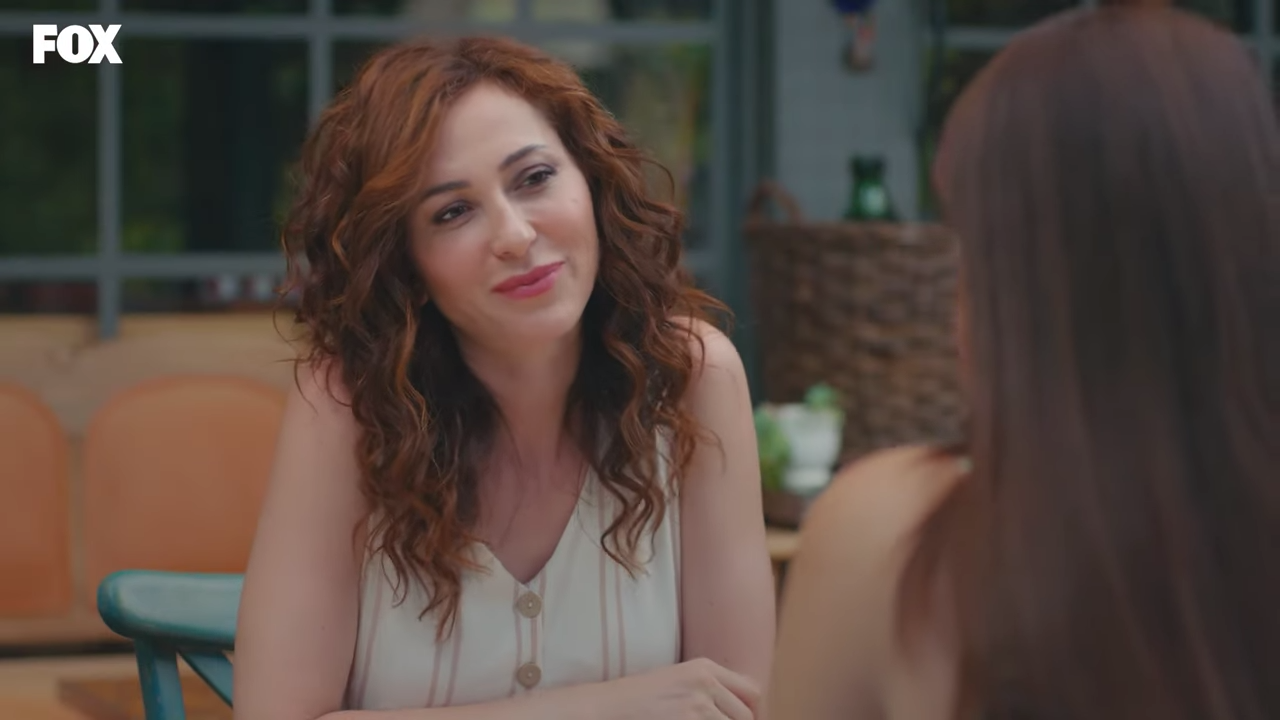 |
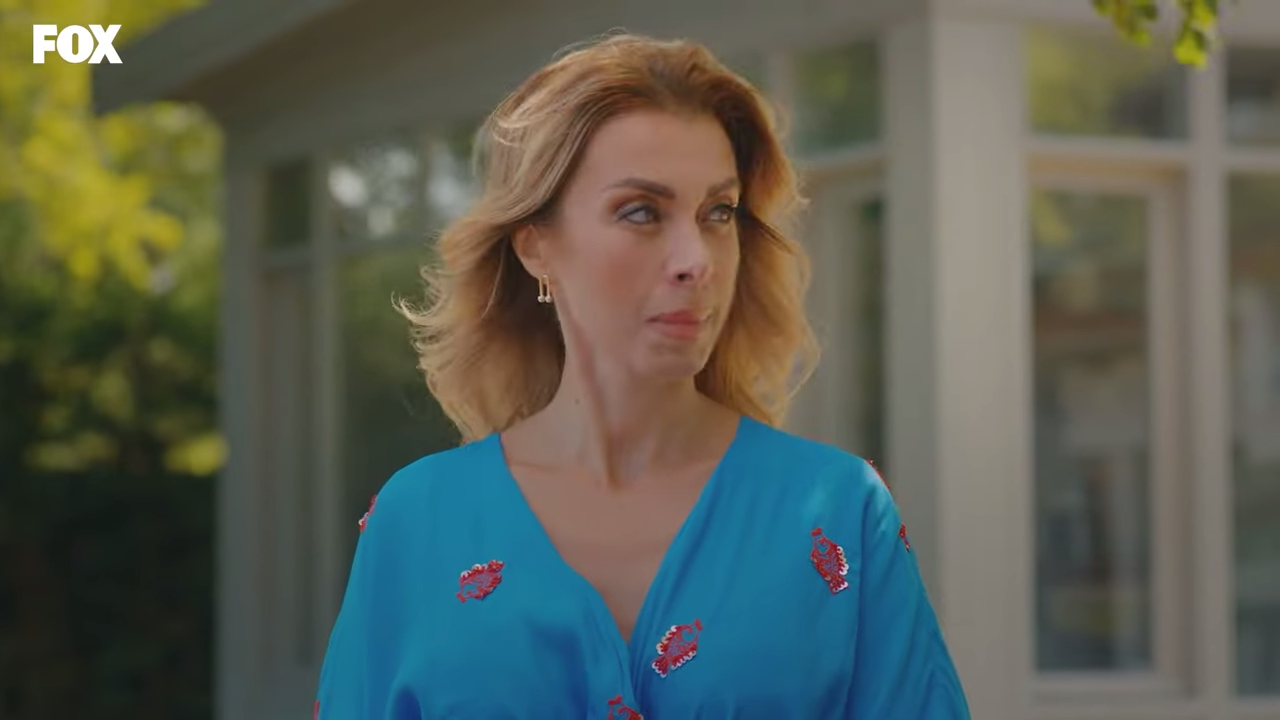 |
The other heinous storyline for these women was the love triangle with Chef Alex. This was possibly the most infuriating plot in all of Sen Çal Kapimi, leaving aside the amnesia mess. Not only was it sexist, but it was also demeaning and insulting. Two grown women literally having a hair-pulling fight over a man was unbelievably bad and I was embarrassed to have to watch it.
The least said about the plane crash, amnesia plot, and return of Selin the better, but all of the over the top, telenovela plotlines in the episodes after the original writers left the series were almost entirely terrible. I don’t want to dwell too much on all of that but a series like Sen Çal Kapimi, rooted in literary traditions of fairy tales, mythology, romance, and relationships that bring out the best in people, cannot be turned into a soap opera without destroying the original concept of the show. Don’t get me wrong, shows like Dynasty or Yasak Elma that started in that soap opera category can be very fun to watch because it’s anticipated that they will be these crazy storylines like amnesia or dead doppelgänger wives introduced and it’s expected. Sen Çal Kapimi was not that kind of a story. So when these elements are introduced, especially when it’s obvious that they are only being introduced to keep the show on the air, it’s impossible to take. I am not blaming any of the writers after Ayşe Üner Kutlu and her original team, although I do think they could have come up with something less schlocky than amnesia. The blame solidly lies with the producers and the channel who just wanted to keep making money from the show and didn’t care about the actual story.

I have not been shy to state that I am a big fan of Ayşe Üner Kutlu’s writing, I believe she excels at creating beautiful and loveable characters. My biggest complaint about her writing is her treatment of her villains, they seldom get what’s coming to them. Selin, Kaan, Efe are all allowed to simply slink off and never really suffer any consequences to their actions, or at least not enough to satisfy. I have the same complaint about Babanne but she left after Ayşe was already gone.
Having said all that I will balance it by saying I recognize that making television shows is a business, and the ultimate goal is to make money. So, if a show is popular and creating revenue they are going to find ways to keep it going, regardless of what it does to the narrative of the show. This is the reality of show business. The writers, producers, cast, and crew are all relying on the show for their livelihoods, so I have had to keep that in my mind as I watched episodes that were not very good.
Final Thoughts
Ultimately, I will look fondly at Sen Çal Kapimi as a whole. There may be episodes that I never watch again and some plot lines I will pretend never happened, but they pale in comparison to the love I have for the love story of Eda and Serkan, for the exceptional secondary characters, for a lot of laughs and tears and for the big international community that the show created. There have been some incredible articles written about the show, a podcast dissection of each episode, and too many to count conversations online that have filled up a lot of hours in a time when we need distractions.
I have been introduced to an entire cast of actors whose careers I will be following closely because I enjoyed their work so much on SÇK. And after approximately 150K words written by me about this series I am ready to say goodbye to it, it got its happily ever after ending and it’s time to put the story to bed and for the cast to move on to other projects. It wasn’t a perfect series, it did drag on too long for that, but it was very good and I will put it on my list of favourite shows for sure.
I would like to thank Dizilah for allowing me to express all my feeling and opinions about Sen Çal Kapimi, it has been a wonderful experience to write a weekly review. I would also like to thank Kristin and Ashley from the podcast Dizzy for Dizi for all their kind words about my reviews here, and if you haven’t already checked out their podcast you definitely should. Lastly, I would like to express my appreciation for all of you who have read these reviews and all the comments both here and on Twitter have been so amazing to receive. Iyi ki varsin and teşekkür ederim.
And whether we shall meet again I know not.Therefore our everlasting farewell take:
For ever, and for ever, farewell,
If we do meet again, why, we shall smile;
If not, why then, this parting was well made.William Shakespeare - Julius Caesar

